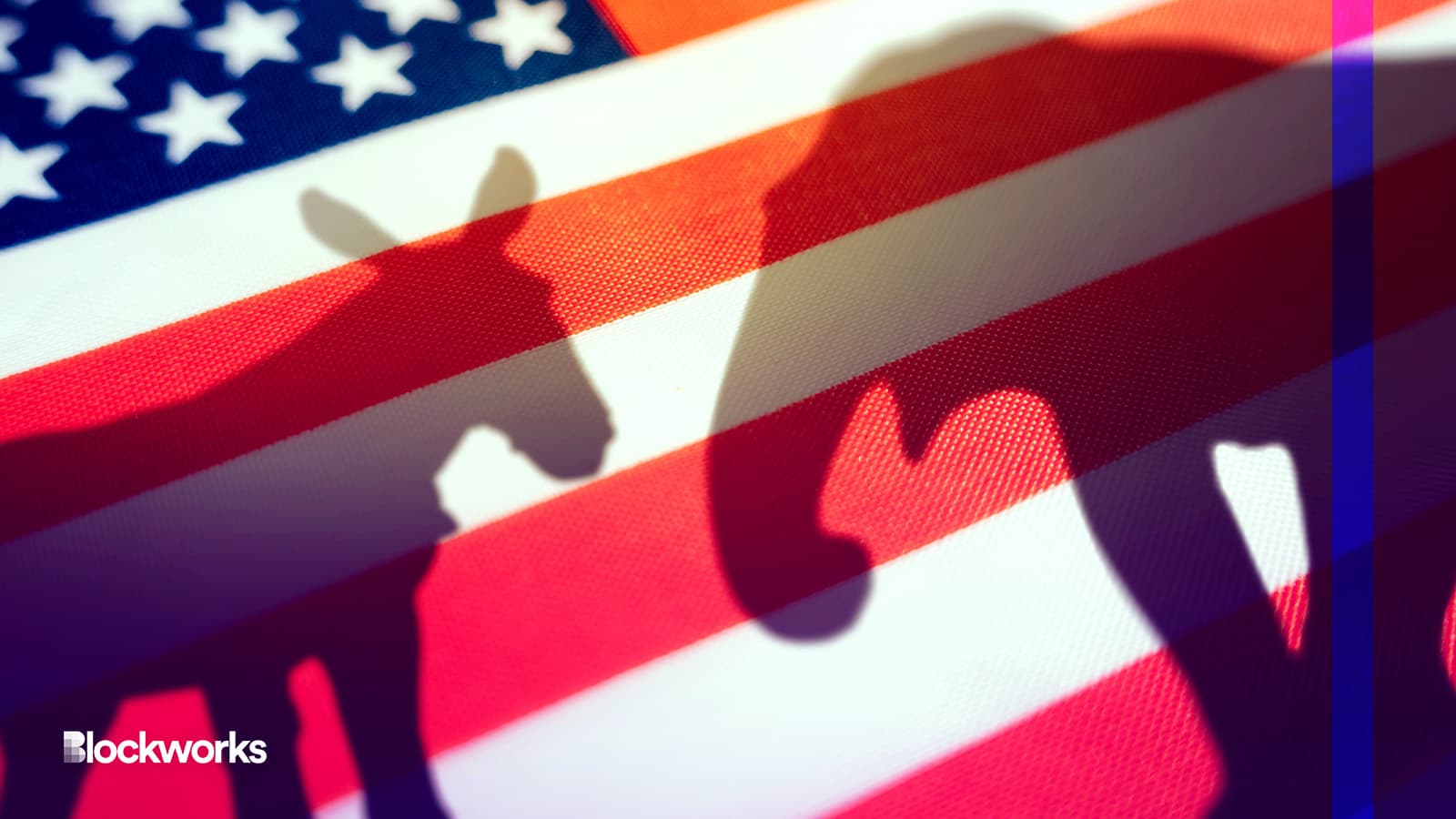Crypto needs to get Democrats on board to advance US policy
Crypto industry members and lobbyists need to remember who they are talking to when trying to appeal to Democrats, lobbyist says

diy13/Shutterstock modified by Blockworks
As legal battles heat up and crypto enforcement shows no signs of slowing, industry members and lobbyists are ramping up efforts to appeal to lawmakers, particularly Democrats.
John Rizzo, senior vice president for public affairs at Clyde Group, told Blockworks “the leading progressives,” including Sen. Elizabeth Warren, “now hold a position on crypto that is indistinguishable from some of the largest banking lobbies in the country.”
“It has become partisan, and it’s dangerous for the industry, because if you’re a partisan issue, the livelihood…of your industry is subject to the whims of an election,” Rizzo said.
Party lines have deepened this session as lawmakers struggle to get on the same page.
“We really don’t believe blockchain is a partisan issue,” Perianne Boring, founder and CEO of the Chamber of Digital Commerce, said. “We just think politics have gotten in the way of smart legislation.”
Democrats have been reluctant to support the Digital Asset Market Structure Bill, a draft penned by Republican chairs Patrick McHenry and Glenn Thompson, of the House Financial Services and Agriculture Committees, respectively.
Even with support from key committees, Republicans need Democrats to get on board if the bill is to have a realistic chance of advancing.
“There’s skepticism right now on both sides of the aisle, especially in this post-FTX world of crypto,” Kristin Smith, CEO of the Blockchain Association, said. “[There is] probably more skepticism on the Democratic side than the Republican side, but it’s not universal, and I think that if there is a divide, it tends to be more along age lines than party lines.”
During a House hearing in June to discuss the draft, Democrats were opposed. Financial Services Committee Ranking Member Maxine Waters, D-Cali., said the legislation had too many loopholes for crypto companies, likening it to a “get out of jail free” card.
Rep. Brad Sherman, D-Cali., argued during the hearing that the bill would only make it easier for bad actors like now-indicted Sam Bankman-Fried to get away with their crimes.
Democrats generally do not appear to be moving off script, though, making the bill’s lobbyists and supporters jobs that much harder.
“The drafters of the bill really want this to be a bipartisan effort, and they are working really hard to do this in a bipartisan process,” Boring said. “But I think they’ve run into a lot of challenges because the Democratic Party has really just taken this political stance of being kind of anti-crypto.”
When speaking with lawmakers and trying to get crypto policy through, the strategy is to remember who you’re talking to, Boring added.
“Republicans usually love anything about economic growth, or creating jobs, building the economy, that resonates with them very well,” she said. “On the Democratic side…it’s anything social; financial inclusion, anything about protecting and empowering the retail investor and consumer, those are things that resonate.”
The narrative that Republicans are pro-crypto and Democrats are anti-crypto is relatively new, Boring said. Historically, the parties have been able to find common ground, she added, pointing to the bipartisan Congressional Blockchain Caucus.
The Caucus was founded in 2016 by Democrat and current Colorado Governor Jared Polis and former Republican representative and Trump staffer Mick Mulvaney. The goal is to investigate the potential benefits of crypto technology.
“Protecting investors and providing clarity for innovators is not a partisan issue,” Brett Quick, head of government affairs at the Crypto Council for Innovation, said. “Lawmakers on both sides of the aisle recognize the potential for blockchain technology to revolutionize many of our legacy systems.”
Get the news in your inbox. Explore Blockworks newsletters:
- The Breakdown: Decoding crypto and the markets. Daily.
- 0xResearch: Alpha in your inbox. Think like an analyst.






